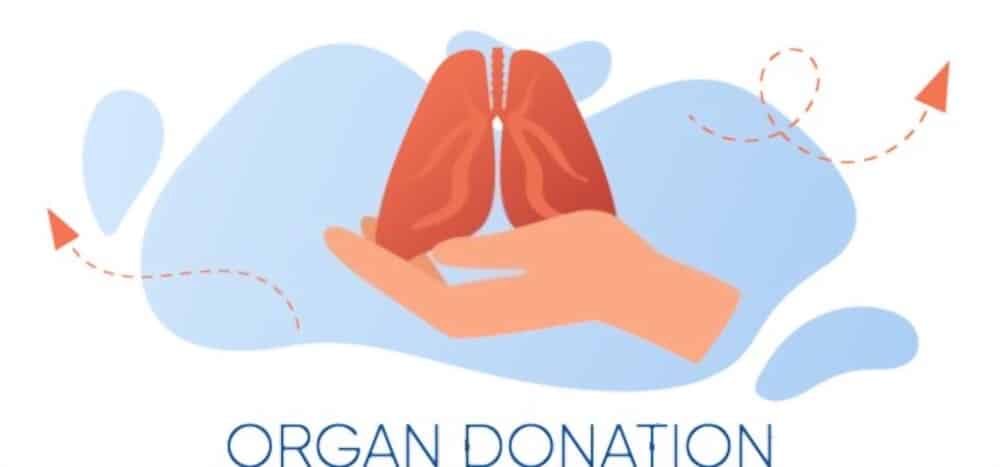In most developed countries, the demand for organ transplants is growing much faster than the supply of organs donated through traditional means. Hence a small but growing number of the world’s poor are providing body parts, especially kidneys, for sale.
When patients travel overseas to transplant an organ outside their home country is called Transplant Tourism. It is an emerging form of medical tourism.

This shortage of organs means a lengthy and uncertain wait for critically ill patients or resorting to overseas transplantation, which may mean either trafficking organs or being obtained from unwitting, unwilling, or dead donors in dubious circumstances.
As many as 15% of at least 10,000 American patients die each year while waiting for liver transplants, so that recourse to overseas sources is unsurprising, and similar situations occur in other developed countries. Demand for organs has intensified as populations age and hypertension and obesity become more common.
A parallel process, ‘xenotourism,’ involves animal-to-human transplantation, notably of pig insulin, and raises issues of transspecies viral infection. Transplant commercialism, the trafficking of organs across international borders, accounts for an estimated 5–10% of kidney transplants, despite contravening international conventions and creating political stigma. In contrast, ‘transplant tourism’ involves traveling for over- seas transplants.
Most overseas transplants take place in relatively poor developing countries. They are highly controversial because of the potential negative medical impact on the ‘donor’ and, in some countries, their excision from executed prisoners.
Durban and Johannesburg, for example, were meeting points for such surgery on ‘transplant tourists’ until the South African government broke up a trafficking ring. Some have described it as a ‘repugnant market,’ outside the range of moral market transactions, though trade bans might also be seen as immoral where dying patients await organs. A similar phrase might also cover aspects of reproductive tourism, where market values challenge social values.
Transplantation brings together patients on long waiting lists, the ‘parsimonious payers of their expensive dialysis (states, insurers, and providers),’ travel and tourism industries, and ‘the impoverished men and women who can sell nothing but their body parts in an extreme form of ‘neoliberal globalization.
This conjuncture raises concerns over the morality of national political economies where individuals are forced to resort to considering transplant commercialism as a valid economic option. In extreme cases, vendors have been illegally transported across borders, as in the case of Brazilians taken to South Africa, whose kidneys were given mainly to Israelis after they had been given false promises over the money they would earn, the after-care, and the after-effects.
Despite cultural variations, ‘the flow of organs follows the modern capital routes: from South to North, from Third to First World, from poor to rich, from black to brown and white, and from male to female.
Significant legal and criminal issues are raised where this allegedly involves the illegal purchase of organs in countries such as India, China, Brazil, and South Africa. Organs for transplantation have been removed without permission from executed Chinese prisoners (the source of about two-thirds of Chinese transplant organs). This situation left the Chinese judicial system open to corruption by providing perverse incentives to increase the number of executions.
Transplant recipients are from developed countries, though the high cost of transplant surgery, usually several thousand dollars, has limited the number of beneficiaries. In the mid-2000s, estimates suggest that around 400 Americans, mainly from New York and California, received transplants abroad.
Out of a sample of 44 patients traveling outside the USA for transplants, all but five traveled to regions of their ethnicity for treatment; this included 14 who went to China, six to Iran, four to the Philippines, three to India, and one each to Pakistan, Turkey, Peru, Mexico, Egypt, and Thailand – a classic example of diasporic medical tourism since only one was described as ‘American.’ The same was true of a second smaller group of kidney recipients from the USA who followed similar ethnic ties.
Few of the limited benefits have trickled down to impoverished vendors, who are often the victims of manipulation, fraud, and physical violence, and whose health and financial status tend to worsen after the transaction, as in India, Moldova, Pakistan, and the Philippines.

Vendors are exploited; the poor have less chance of receiving organs, and transplantation success are limited in difficult medical and social circumstances where care in challenging medical contexts is probably substandard.
In the Philippines, most kidney vendors were young men below the poverty line, from impoverished villages or urban squatter settlements, with dependent relatives and a ‘desperate need for cash.
Simultaneously patients in developed countries die because organs are locally unavailable for transplant, posing global ethical questions that cannot quickly be resolved; moreover, those who are least able to access transplants in developed countries may be ethnic minority groups in depressed and less affluent regions of the country.
In a particular form of more general criticisms of medical tourism, through meeting the needs of overseas tourists, transplant tourism has excluded both local patients on waiting lists and the public services that should have treated them.
More than a million people in China have been estimated to need organ transplantation, and the country has several transplant centers. Still, demand significantly exceeds supply, so the principal beneficiaries are wealthy patients. As some available organs are sold to transplant tourists, the proportion available to poor Chinese is limited. A similar situation occurs in Pakistan and India.
Transplant tourism is also problematic since failure rates are high, and morbidity can increase, due to poor vendor screening, selection, and matching in the supplying country, alongside inadequate record keeping, while patients may contract transmissible infections.
One man who had undergone a renal transplant in India initiated a hepatitis B infection in two London hospitals. Patients who receive organs from living relatives have better outcomes than those who receive commercial transplants, whether from live donors in India or deceased donors in China.
This raises questions over the treatment of returning tourists that are substantially greater than for other forms of medical tourism because of the extent of their needs and the unethical basis of the operation. Doctors in their home countries perceived patients who had received transplants in China less favorably.
Transplant tourism is also said to have harmed donation rates in developed countries, further marginalizing people who cannot ‘outsource’ themselves, raising financial burdens on patients and insurance companies, and intensifying global competition for patients, organs, and investments in transplant services, a process that disadvantages everyone. But the main losers are those who sell organs.
Criticism has grown, with countries with liberal policies on transplant tourism, especially China, Pakistan, and the Philippines, becoming more critical of organ sales.
In 2007 Pakistan banned organ sales, and the Philippines banned transplants for foreigners. Patients then traveled to Egpyt as former destinations were no longer possible. However, legislation (such as that in China, where foreigners were excluded from organ transplant programs in 2009) has sometimes been honored in the breach, and some activities are driven underground.
In a country where illegal trade in babies exists, illicit organ trade may not be so extreme. In 2009 the Philippines was still advertising its ‘organ transplant bazaar,’ but a year later set up a nationwide organ donor register to stop the poor from selling their kidneys for as little as US$3500 to make ends meet.
Although sales of organs have been banned in India since 1994, a black-market industry emerged, and estimates suggest that illegal kidney transplants remain common, often through the duping of poor Indians. Consequently, patients and hospitals have been warned against dubious practices in various contexts, and MTCs and others have emphasized that such activities are not condoned.
In India, the IndUShealth company stated in 2010 that ‘Transplants are not performed unless the patient makes arrangements to bring a matching, consenting donor who is known to the recipient and can establish their legitimate desire and reason to offer their organ to the recipient.
At much the same time, at a national level: The Japanese government recently warned hospitals from assisting with transplant tourism to China … because of China’s lack of transparency and use of prison inmates in obtaining organs. The Japanese Ministry of Health, Labour and Welfare conducted investigations of 247 hospitals in Japan, finding that doctors in five of the hospitals, including several in Tokyo, were found to have aided patients by providing their medical histories to agencies who could arrange organ transplants overseas for them.
The Ministry of Health warned the hospitals not to assist in illegal organ trafficking. Regulation may eventually reduce this form of globalization and demand more effective national responses (and higher donor rates) in developed countries.